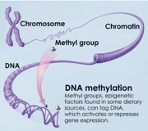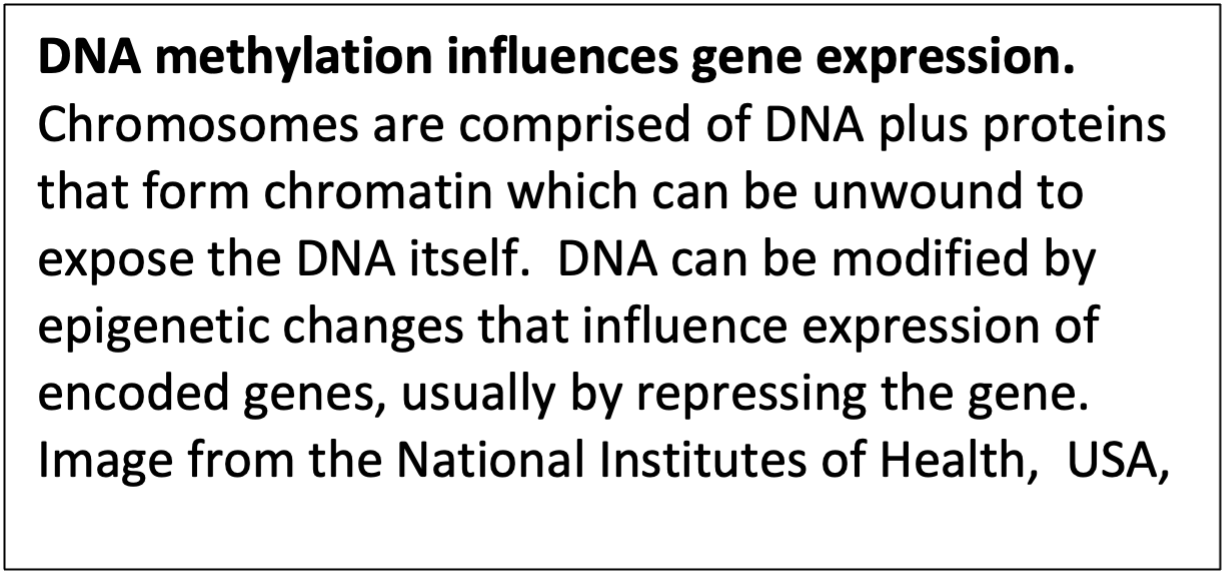A new strategy to improve the expression of MeCP2 by reactivation of the inactivated X chromosome.

Background and Introduction. A previous article (Further studies on how to cure Rett Syndrome-Re-activate the inactivated X chromosome) now on the RSAA website discussed how it might be possible to induce MeCP2 expression from the inactivated X chromosome and consequently effect a cure for Rett Syndrome. As noted in that article, this strategy is dependent on several key facts;
- all females have 2 copies of the X chromosome, whereas males have 1 copy of the X chromosome and 1 copy of the Y chromosome
- to ensure that the expression of X-linked genes in females is not double that in males, 50% of X chromosomes are randomly inactivated in females
- Rett Syndrome results from mutations in the MeCP2 gene present in the X chromosome
- thus, all Rett Syndrome individuals have one copy of the X chromosome which contains a mutant (non-functional) MeCP2 gene and one copy of the X chromosome which contains a functional MeCP2 gene
- MeCP2 is expressed in many cells throughout the body, but is predominantly expressed in neurons in the brain where the protein normally controls many aspects of development
- thus, 50% of neurons contain the gene for a functional form of MeCP2 but this is in the inactivated X chromosome that could, in principle, be reactivated as a potential cure.
Hypothesis and study design. Inactivation of the X chromosome is the result of a cascade of epigenetic events (chemical changes to the DNA that are unrelated to the basic DNA sequence) to ensure shut down resulting in complete loss of expression from the encoded genes. One of these changes results in chemical modification of the DNA, a process termed DNA methylation. However, epigenetic changes to DNA that alter the expression of proteins from genes are reversible. It has been hypothesised that reversal of this process, that is de-methylation, could result in regain of expression of proteins from the inactivated X chromosome. However, previous attempts were non-specific and risked inducing expression of a plethora of proteins which may have deleterious consequences. To overcome this, a recent study from Qian et al [Multiplex epigenome editing of MeCP2 to rescue Rett syndrome neurons; Science Translational Medicine, volume15 (679)] investigated a novel specific strategy aimed at reactivating only the MeCP2 gene from the inactivated X chromosome.


De-methylation alone is insufficient for efficient MeCP2 expression. This specific strategy depends on delivery of a de-methylation enzyme linked to a small RNA molecule (single guide RNA-sgRNA) that is designed to target a region in the MeCP2 gene; this strategy differs to previous non-specific strategies which can be likened to battering a door with a sledgehammer to gain entry, whereas the new strategy uses a key to open the door. Initially, as a model, using human embryonic stem cells that were unable to express MeCP2, delivery of the sgRNA/de-methylation complex resulted in a reduction of the level of DNA methylation and expression of MeCP2. When these cells with the newly expressed MeCP2 were developed into neurons, MeCP2 expression was maintained. The results confirmed two vitally important points; i) demethylation of the MeCP2 gene in the active X chromosome had no effect on MeCP2 expression-a vital finding to ensure to avoid MeCP2 duplication syndrome and ii) the Rett-associated defects in the nascent neurons that expressed MeCP2 from the inactivated X chromosome were corrected so that the functions were similar to that of normal neurons.
However, when the researchers attempted to repeat the above experiment on neurons (as opposed to stem cells that were differentiated into neurons after de-methylation), the results were less convincing and only resulted in partial re-activation of MeCP2. Since (as noted above), X chromosome inactivation results from a cascade of events, the researchers then used a second strategy to supplement the de-methylation strategy. The researchers identified two sites that flanked the MeCP2 gene in the inactivated X chromosome that were enriched for a specific chromatin protein (chromatin is a mixture of DNA and proteins that form the chromosome) and used an antibody to this chromatin protein to increase the efficiency of delivery of the sgRNA/de-methylation complex. This resulted in an increase in the neuronal expression of MeCP2 as compared to neurons which were treated with the sgRNA/de-methylation complex only and a further improvement in neuronal function.
Discussion and future work. These highly sophisticated experiments proved that precise de-methylation of the MeCP2 gene in the inactivated X chromosome can specifically reactivate the gene to result in expression of the protein and repair of functionally-defective neurons. Although the level of MeCP2 expression failed to reach the levels associated with normal neurons, prior studies noted that “even low levels of MeCP2 expression can restore a nearly normal lifespan to MeCP2-defective mice”. Thus, this proof of concept study provides the impetus to continue this approach towards introducing the strategy into human trials. Although other approaches (eg. Gene therapy) are more advanced, the field will benefit enormously, not only by providing an alternative approach, but also because this and similar studies continue to expand our basic knowledge of MeCP2 biology that can be applied to future translational research, irrespective of the approach.
Eric Gowans
Adelaide
15 March, 2023
